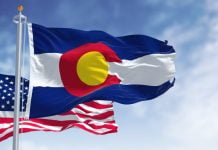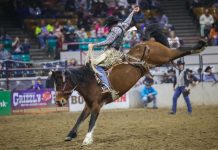Colorado has shown its hand as being among the latest states to express an interest in opening up legalized sports betting. The state’s Department of Revenue (DOR) has published a public policy information document outlining a series of options around sports wagering and how it will be managed. It also confirmed that there will be a requirement for statutory, rather than constitutional, amendment to facilitate the introduction of a legal framework.
Addressing the management options available, the document stated: “After researching and examining laws and regulations of other states that have begun to allow sports betting, it is recommended that the DOR act as the regulatory agency over sports betting in Colorado.
“Within DOR there are four options for organizational management and oversight of the Colorado sports betting industry: incorporate sports betting under the enforcement and regulatory duties of the Division of Racing, the Division of Gaming, the Colorado Lottery, or create an entirely new division dedicated to the regulation of sports betting.”
All options should, said the DOR, incorporate a mobile component and include a licensing component for regulation. Furthermore, no matter which model, consensus should occur among all divisions and industries to achieve successful implementation.
On taxation, the DOR has recommended a level of between 6.5% and 16% of the adjusted gross proceeds (AGP) or of net revenue, set annually within the range. “If the tax is set too high, it will discourage players from moving out of the black market,” it noted, adding: “Tax collected on sports betting should be directed to a specific purpose/need et transportation or education funding for the state.”
Turning to mobile provision, the DOR stipulated that regulations should limit mobile licenses to gaming business licensees and Class B racetrack licenses. All transactions, it said, are to be initiated, received and otherwise made exclusively within the state line with age and location verification utilized to block young persons and those outside of the state. Servers must be located in Colorado, and initial player accounts will need to be set up in person at brick and mortar licensed facilities.














